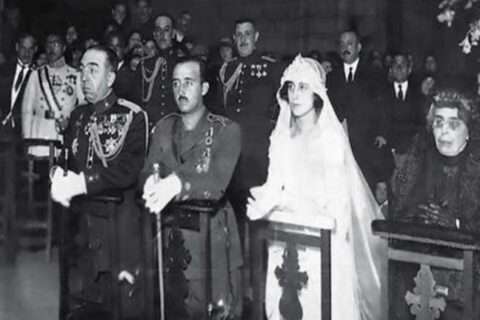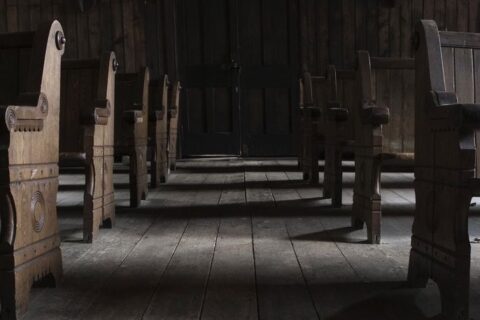Everyone has a favorite song, a favorite genre of music. Whether it be a guitar tuned to a dog house bass or the high and lonesome whines of a fiddle break, there is something that speaks to us all on some metaphysical and innate level. Soul music is what the blacks call this particular phenomenon within their culture. As a card-carrying member of the Institute for Advanced Negro Studies, I have often observed how this particular genre of music can instantly captivate and animate the Southeastern Negro unlike anything else. Marvin Gaye can literally make a black man stop mid-walk in a grocery store isle and break into song and dance. It is an amazing character trait that seems to be genetically transmitted throughout the generations. The power of song grips old and young with no regard to socioeconomic, religious or political factors.
This should not be a shocking revelation to anyone. Music is intrinsically linked to culture and vice versa. As Southerners, we are very aware of this fact. From our bluegrass mountain music borne of the hearty Scots-Irish to the raw Red Dirt sounds that are sweeping across Dixie from the west, we are a people who truly know song. The Lord has used the power of song to enact His will time and again down through history. He used the power of song to bring Christianity to England in a way that no missionary from Rome ever could and he used one very unlikely man to do it. Behold the ancient story of Caedmon.
In 7th century Anglo-Saxon England, the favorite pastime of communities was to gather in a monastery or old pagan hall and pass around a harp while feasting, drinking and being together. This harp was tuned in an open chord so that all who strummed it could easily formulate a pleasant melody to sing along with. Yes, your Anglo-Saxon ancestors loved them some karaoke! Caedmon was a lowly stable apprentice living a monastic life in Whitby Abbey, Northumbria. He loved to hear the songs and be a part of the collective rejoicing, but Caedmon was a terribly shy introvert. I would liken him to the quiet, shy guy of modernity who lives through his earbuds, but never lets you see him even so much as mouth the words to the songs he listens. This was all fated to abruptly change through the divine hand, the Ingvaeonic hand (Anglo Gang, sorry not sorry) of God himself.

Caedmon retreated to his stable sanctuary one night as the monks began their singing and praising of the Lord. These were learned men who sang in Latin the songs of Christ. Caedmon did not understand these lyrics and knew not what to say in his native Saxon tongue. As he lay sleeping in his bed with these matters troubling him and sitting heavily on his mind, he began to dream. As the dream unfolded, he was approached by a stranger who handed him a harp and asked him to play the “Song of Creation,” Caedmon was terrified of this so he refused, saying to the stranger, “but I cannot, I do not know how.” The stranger would not relent and implored him on saying, “Yes, you can and you must. Now take up your harp and sing.”
Upon waking the next morning Caedmon wrote in Anglo-Saxon, not the foreign words of Latin scribes, a eulogy of the greatness of God and all his creation. It should not be a shock to the reader that when ol’ boy Caedmon, who don’t say much, arose from his slumber and started singing the praises of the Lord in his peer’s native tongue (something very rare for the time period) that his monastical supervisor would immediately drag him off to the Abbot, or in this case the Abbess St. Hilda. Once Caedmon was presented to the council, they inquired as to how he had acquired this ability, to which he told them of his dream. This was rightly announced as a miracle and through further investigation of this gift it was discovered that Caedmon could be read a portion of Scripture and immediately turn around and drop a fat track pleasing to the masses. God indeed works in psychedelic ways, my man.
Through Caedmon’s songs of Jesus and Scripture, the common folk of the time, the people who would never be able to learn Latin and all the culture artifacts required to truly adopt the style of Latin Christianity, were given the gift of a Christian culture anew through song. Songs in the style of their time (Germanic alliterative for those interested). This would allow for the spreading of Christianity throughout Britain like a wildfire across the scrub brush forest of the Deep South, much in the same way three chords and the truth allowed for Country music to become so popular among our people today.
The lesson to be learned here is that through song an entire culture can be changed. Case and point the 1960s. I see firsthand an overwhelming thirst for another cultural revolution. We are a nation existing literally by the skin of our teeth. We have a sea of eager ears wishing to hear the songs of our people. Not just our peoples’ voices and accents singing what semetic tongues think we want to be hearing or what is considered trendy, but the actual songs of the veteran’s lament for Vicksburg or the God given Stoicism of the Immortal Six Hundred. The right-wing has never been very good at this particular area of attack. The Left, however, can easily claim the weapon of song as their primary battle rifle. If we want to win this culture war then by God Dixie must sing and we must rejoice towards the heavens with gladness of soul because a.) We sound way cooler than “them” and b.) I’m tired of hearing dudes with ethno-masochistic fantasies who wear girl jeans on the radio.
Young men and women of Dixie, take heed of these words. Tune up you fiddle and rosin your bow. Make yourself welcomed wherever you go. Sleep on floors and live off tip jars. Ride the Kali Yuga while banging that G-chord, but never allow your mission to be forgotten. I’ll leave you here with a Psalm to be your guiding principle.
A Song of degrees.
1When the Lord turned again the captivity of Zion, we were like them that dream.
2Then was our mouth filled with laughter, and our tongue with singing: then said they among the heathen, The Lord hath done great things for them.
3The Lord hath done great things for us; whereof we are glad.
4Turn again our captivity, O Lord, as the streams in the south.
5They that sow in tears shall reap in joy. 6He that goeth forth and weepeth, bearing precious seed, shall doubtless come again with rejoicing, bringing his sheaves with him.





Song lyrics and slogans are indeed very powerful. A few magic words and magic chords can be more influential than a well argued essay anyday.